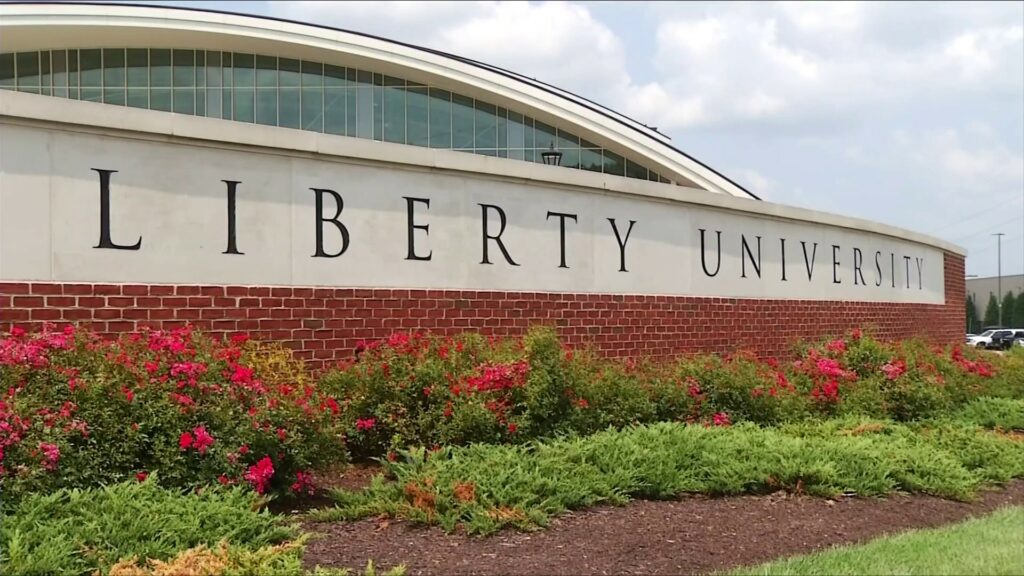David French is a conservative writer and a “theologically conservative traditional Christian,” Wikipedia says. But he’s also been known to think about things, which must be disorienting for him sometimes.
In The Moral Collapse of America’s Largest Christian University, French appears genuinely to be surprised at the moral rot at Liberty University. He begins by citing a report at Pro Publica documenting that women students were discouraged from reporting rape. Rape victims, in fact, were threatened with punishment for violating the university’s moral code if they reported being raped.
One young woman went to the school’s designated office for investigating sexual harassment and violence with all kinds of evidence — a hospital report, photographs of her injuries, emails from friends discussing what they saw. Liberty took all this material and lost most of it (the photos were “too explicit” to be kept in a file, as were some of the witness statements). At the hearing, all Liberty cared about was grilling the young woman on how much she’d had to drink before the incident. The investigation couldn’t continue until she had signed a form acknowledging she had violated the school’s code of conduct. And then the school exonerated the rapist. Some of the students who testified on behalf of the woman said that their testimony was misquoted in the final report. See also ‘Weaponization of the Liberty Way:’ LU punishes women reporting sex assaults, lawsuit says.
David French may have been surprised at this. I am not. This is what happens — what has always happened — in rigidly patriarchal institutions, religious and nonreligious.
As far as religion is concerned, one of the most common traits found in very conservative religious institutions, whether Christian, Jewish, Muslim, Buddhist, or anything else, is the subjugation of women. In particular, women are seen as “unclean” and impure by nature, so if they are violated it is their own fault. Liberty University may not condone stoning rape victims as “fornicators,” but the difference between Liberty and extremist Muslims is one of degree, not kind.
In the political realm, you might have noticed that right-wingers are opposed to rape, in theory. But when confronted by an actual flesh-and-blood rape victim bringing accusations against an actual flesh-and-blood man — well, a white man — somehow the woman is never convincing. She’s probably filing a false complaint. What was she doing in a bar, anyway? What was she wearing? Is this worth destroying a man’s life? You know the drill. And while the Liberty student might have been better off if she’d gone straight to police rather than report through university channels, there’s no guarantee the local LEOs wouldn’t have been just as sexist as the university.
David French points out that while Liberty’s women students were being blamed for being raped, “their own school president was an open and notorious drunk. His wife was accused of affairs with younger men, and one of those men claimed that Falwell liked to watch.” Yes, Jerry Falwell, Jr., never met a corruption he didn’t like. He was so thoroughly debauched the university had to cut him lose to save itself.
David French, bless his heart, wants you to know that Jesus doesn’t approve of Falwell’s, and Liberty’s, behavior. He also has a pretty candid analysis of Christian influence in U.S. history.
Historically, one could arguably locate the apex of Protestant power in the United States as somewhere around the time of Prohibition. After all, Christians were powerful enough to pass a constitutional amendment banning alcohol, all as part of an effort to improve public morals and public health.
Yet what was the state of American righteousness at that time of apex Christian power? Lynch mobs roamed the South. The entire region was an oppressive nation-within-a-nation, largely cut off from the rule of law. Anti-Catholic Blaine Amendments proliferated across the United States. Not even religious liberty was safe when Christians ruled.
And what about the present? Its largest institutions reel from scandal. A great mass of its members have succumbed to conspiracy theories. Its “religious” anti-vaxxism is claiming lives by the thousands.
He doesn’t mention Dr. Martin Luther King and the civil rights movement. But it’s safe to say the influrence of Christianity has been a very mixed bag.
Religious institutions often prioritize protecting the institution over practicing the religion. We’ve seen that recently in the Catholic Church and the Southern Baptist Convention, both found to have covered up sexual predation and to protect the clergy-predators rather than deal with the problem. In patriarchal cultures, it’s second nature for the menfolk in any organization to close ranks and protect other men who are predators, especially if the predator is the boss. A high-ranking church official who also has political connections and influence is practically untouchable.
I don’t see this as a religion problem as much as a problem of human cultures and institutions.
“Success often becomes its own suit of armor,” French writes, “degrading character requirements in leaders until the sin and abuse become too overwhelming to ignore. Then everyone wonders (once again), ‘How did this go on so long?'”
None of this is new. I have a hard time understanding people being shocked by it.
In other dirtbag news: The New York State Assembly has issued a report saying that Andrew Cuomo’s conduct while in office was “extremely disturbing.” And I doubt there isn’t anything in that report that most of the assembly members haven’t known for a long time.
